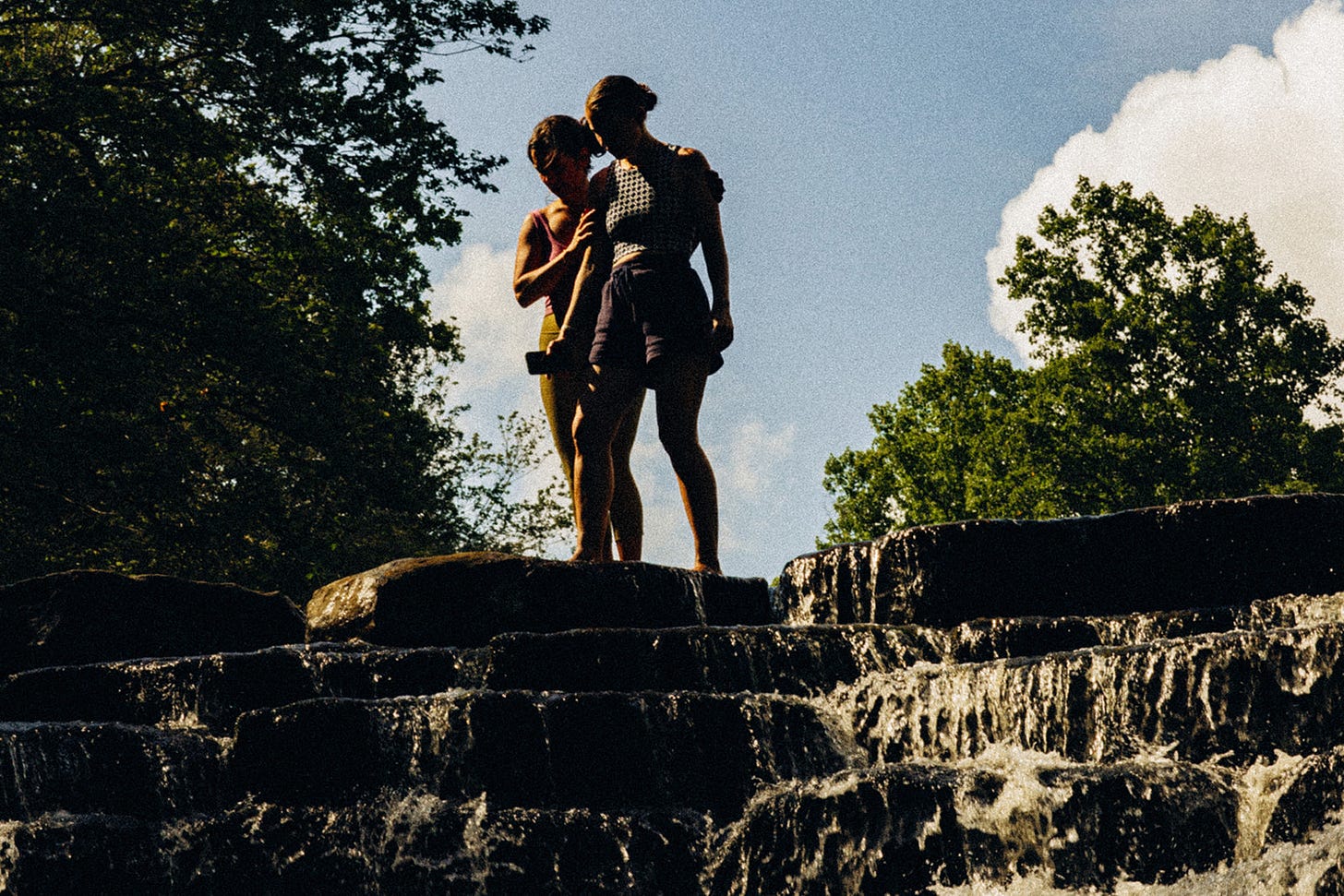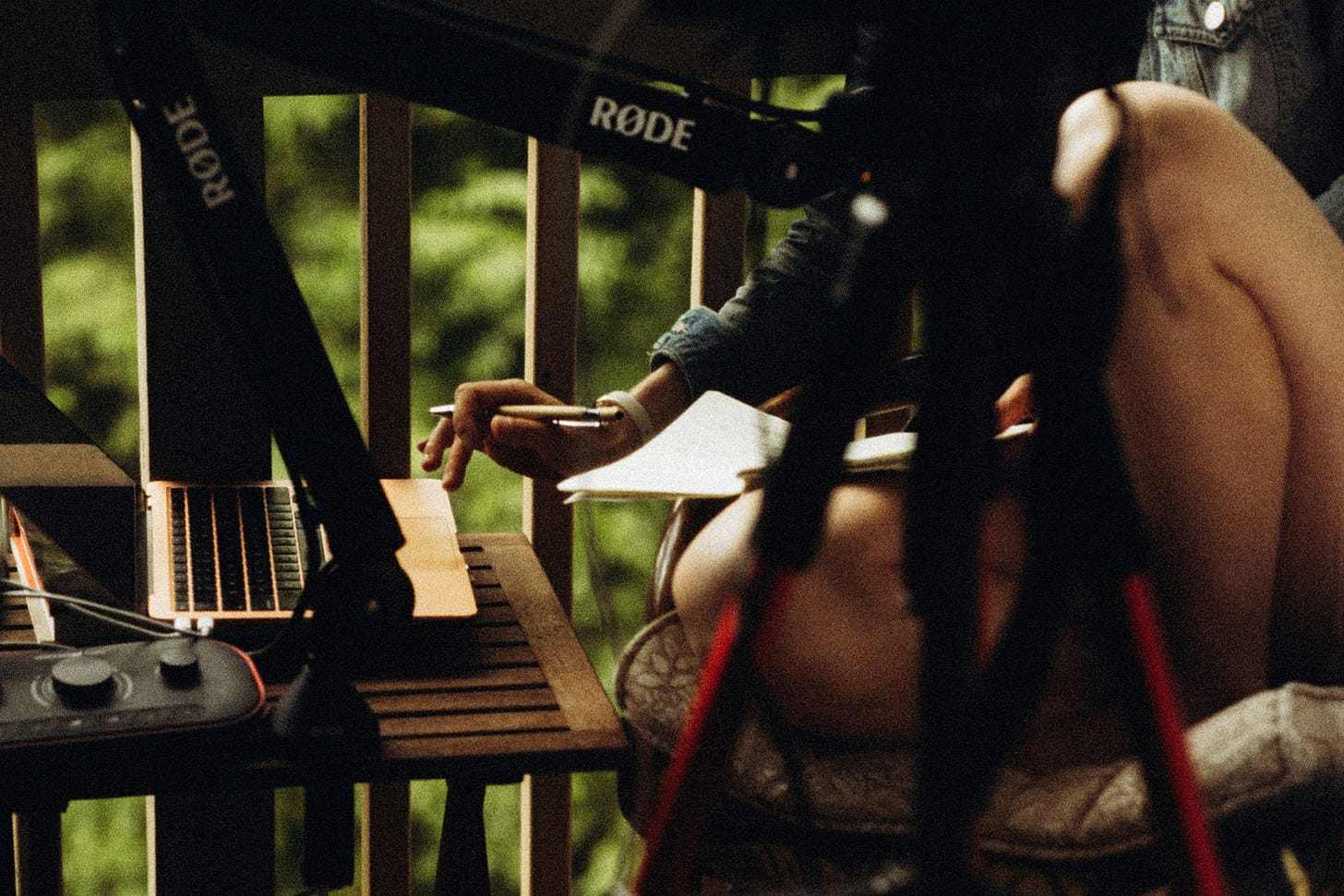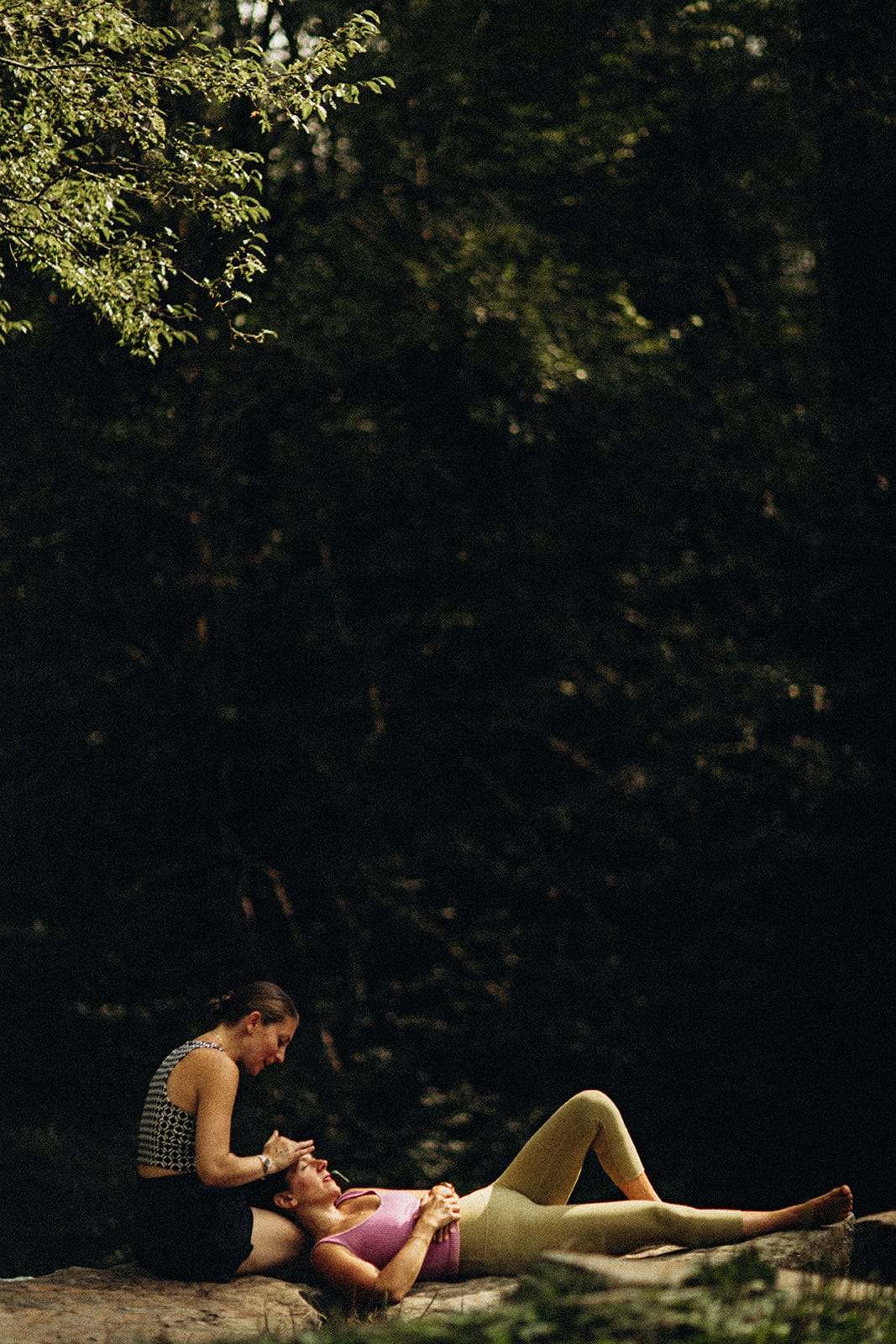The other day I was reading this beautiful piece by
about decluttering your house when you’re overwhelmed. And this phrase she used really stood out to me:Giving things away is recognition of the abundance in our lives, and each act of giving makes the gift economy stronger.
The Gift Economy
Laura recommended I dive deeper into Robin Wall Kimmerer’s essay called The Serviceberry where she shares more on this concept and my mind was blown.
Here’s what stood out to me and turned my mindset work (and business) on its head:
Robin is a botanist and one day she took note of the Serviceberry tree. She noticed how the tree produces berries in abundance and freely shares them with the birds and animals. It doesn’t hoard them for itself but in fact, in order to sustain life, it invites the birds to take their fruit. They then spread the serviceberry seeds allowing the trees to multiply and more of nature to grow and benefit.
It’s a ripple effect based in giving from abundance.
And more interestingly… it’s an economy
This is where my mind was blown🤯 Robin goes on to compare this gift economy to our market economy.
Here are Robin’s words that struck me:
“Conceiving of something as a gift changes your relationship to it in a profound way, even though the physical makeup of the "thing" has not changed.
A woolly knit hat that you purchase at the store will keep you warm regardless of its origin, but if it was hand knit by your favorite aunt, then you are in relationship to that "thing" in a very different way: you are responsible for it, [you have gratitude for it] and that gratitude has motive force in the world.
You're likely to take much better care of the gift hat than the commodity hat, because it is knit of relationships.
[Imagine if we looked at the earth and the things in our life with this much reverence and responsibility.]
This is the power of gift thinking.”
“If our first response is gratitude, then our second is reciprocity: to give a gift in return.
[Think about the Serviceberry.] I accept the gift from the bush and then spread that gift with a dish of berries to my neighbor, who makes a pie to share with his friend, who feels so wealthy in food and friendship that he volunteers at the food pantry.
[Your gratitude to the plant as an example] could be a direct response, like weeding or water or a song of thanks. Or indirect, like donating to your local land trust so that more habitat for the gift givers will be saved, or making art that invites others into the web of reciprocity.”
Gratitude and reciprocity are the currency of a gift economy
“and they have the remarkable property of multiplying with every exchange.
In that climate of sufficiency, our hunger for more abates and we take only what we need, in respect for the generosity of the giver.”
To name the world as a gift is to feel one's membership in the web of reciprocity. It makes you happy-and it makes you accountable.”
What a beautiful economy.
By contrast, Economics is defined as the study of scarcity.🤔
“the study of how people use resources, respond to incentives and decision-make in the face of scarcity. With scarcity as the main principle, the mindset that follows is based on commodification of goods and services.”
This is when I realized how hard it is to have an abundant mindset when our society is actually based in scarcity.
I’ve felt a pull before- to be abundant with my gifts. But it’s been beaten into my brain that I ‘need’ to “charge my worth.” And that “making money is the highest priority.”
My gut has told me there’s a gentler, more natural way to be in business + in life.
And slow, intentional living has definitely helped me release some of that high achiever, outcome focused mentality.
Robin’s words then took it a level deeper for me:
“Ecological economics is a growing economic theory that integrates the Earth's natural systems and human values.
Dr. Valerie Luzadis, a professor of these studies, prefers the definition that ‘economics is how we organize ourselves to sustain life and enhance its quality.’
The system of market economies that we're given as a default is hardly the only model out there.
Anthropologists have observed and shared multiple cultural frameworks colored by very different worldviews on "how we provide for ourselves," including gift economies.”
“Daniel Everett wrote as he was learning from a hunter-gatherer community in the Brazilian rainforest.
A hunter had brought home a sizable kill, far too much to be eaten by his family.
The researcher asked how he would store the excess.
Smoking and drying technologies were well known; storing was possible.
The hunter was puzzled by the question-store the meat? Why would he do that?
Instead, he sent out an invitation to a feast, and soon the neighboring families were gathered around his fire, until every last morsel was consumed.
This seemed like maladaptive behavior to the anthropologist, who asked again: given the uncertainty of meat in the forest, why didn't he store the meat for himself, which is what the economic system of his home culture would predict.
"Store my meat? I store my meat in the belly of my brother," replied the hunter.
There beats the heart of gift economies, an antecedent alternative to market economies, another way of ‘organizing ourselves to sustain life.’
In a gift economy, wealth is understood as having enough to share, and the practice for dealing with abundance is to give it away.
In fact, status is determined not by how much one accumulates, but by how much one gives away.
The currency in a gift economy is relationship, which is expressed as gratitude, as interdependence and the ongoing cycles of reciprocity. A gift economy nurtures the community bonds that enhance mutual well-being
the economic unit is "we" rather than "I," as all flourishing is mutual.
So how am I integrating this into my life and business?
Here’s a list of the ways Robin’s words have changed me:
Shifting my mindset from the individual to the collective
Realizing how focused our economy is on scarcity. That in order for capitalist market economies to work it must manufacture scarcity. And how that thinking makes us feel desperate and territorial and focused on 'I' to the point that we forget about the 'we,' was a big aha for me.
It made me blatantly aware of how I’ve been strangling generosity- often thinking of myself first.
So now I’m focusing on gratitude first. Cherishing what’s around me and showing reverence for it... recognizing that all that’s here isn’t ours but instead ours to take care of.
And then secondly, reciprocity- giving more freely.
Thinking about what the villager said about sharing with his brother- highlighted the difference for me even more. The collective mindset this meat/abundance is reaps more rewards for everyone, shared with my neighbor who can then be there to help me and others later… versus sitting in my pantry only to fuel me.
PLUS the collective mindset just feels better.
Not to mention it’s natures- not mine to hoard for myself.
All of this had me thinking about being more generous to my neighbors, in my community and to those around me.
It made me think: it’s really about depending on each other for growth versus ourselves.
But it takes a mutual mindset shift to do that- right? I’m here to support you and you me vs. the current self-sufficiency mindset.
So, now that I’m actively aware of the market economy (versus passively working under it)- I’ve been journaling on how I want to show up differently in my business.
One thing I’ve tried specifically (that’s felt really good) is trade.
My friend Maryana just opened a beautiful head spa and so we swapped services. I got to enjoy her gifts and share mine too- taking video of her at work so she can share what she does with more people.
This felt really good and is something I want to lean into more.
While it might not work all the time- I think we could do this more often versus purposely avoiding it as I’ve been encouraged in this online space.
Economics redefined as “How we organize ourselves to sustain and enhance life.”
Is making me be even more intentional about what I’m putting into the world.
The gift economy makes total sense to me from a local standpoint- but in this online space- I want to work through how it looks on a global scale.
Another principle Robin shares in the article is about biodiversity and how being different is a way to get around scarcity.
This made a lot of sense to me in terms of business.
I’m always sharing that “You are the filter.” Versus “find your niche.” YOU are the niche.
It felt really good to hear all of the things that Robin shared paired with some things that I'm already integrating.























Share this post